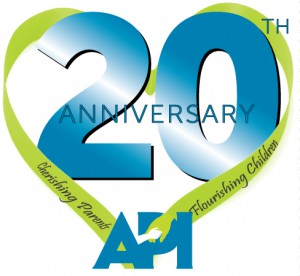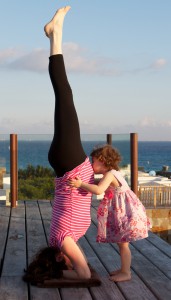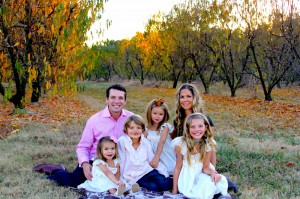 By Barbara Nicholson, cofounder of Attachment Parenting International (API) and coauthor of Attached at the Heart with Lysa Parker
By Barbara Nicholson, cofounder of Attachment Parenting International (API) and coauthor of Attached at the Heart with Lysa Parker
My mom has a compression fracture in her spine and will spend Thanksgiving and maybe Christmas in rehab. At 95 years young, she has been in remarkable health for most of her life, so seeing her suffer in pain is so hard.
When something like this happens to an aging parent, the roles reverse and I find myself doing all the things that I’ve done for my own children, and of course the things that she used to do for me.
 I’ve been reflecting on my childhood in the 1950s, helping me to realize how much my mother practiced what we now call Attachment Parenting.
I’ve been reflecting on my childhood in the 1950s, helping me to realize how much my mother practiced what we now call Attachment Parenting.
One of my earliest memories is a Christmas when I was about 4 years old and wasn’t feeling well, so Mother held me in her arms that whole morning while my dad and brother unwrapped my presents and brought them to me on the couch. I can even remember that she was wearing a soft sweater, and I loved feeling safe and warm in her arms. She didn’t budge for hours, even though I know now she must have needed to get Christmas dinner on the table and clean up the wrapping paper — things that seemed important at the time.
As I bring my mother a glass of water or cut up her food, I think of all the times she so lovingly cared for my brother and I when we were home from school with some childhood illness.
Back then, in a time when doctors made house calls, everyone got the measles or chicken pox. My mom would give me a little brass bell so I could ring it whenever I needed her. To this day, I crave chicken soup and 7 Up when I don’t feel very well, as that was the menu prescribed and that’s what we got. We never had soda in our house, so it’s funny to me now that being sick was the exception!
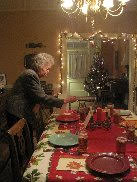 As Thanksgiving approaches, I tear up thinking that my mom may not be able to come to our house. My brother and his family are flying in from Colorado (USA) so that will cheer her up immensely, but it won’t be the same if she’s not at the table, supervising the way the table is set and making her famous cranberry salad.
As Thanksgiving approaches, I tear up thinking that my mom may not be able to come to our house. My brother and his family are flying in from Colorado (USA) so that will cheer her up immensely, but it won’t be the same if she’s not at the table, supervising the way the table is set and making her famous cranberry salad.
There is something intangible about these traditions, when they’re prepared with love and care, that is like a sacrament at the table. The fact that it takes Mother hours to prepare this little Jello salad with boiled cranberries, grated oranges and chopped pecans gives it a quality that takes us back to every holiday we’ve had together as a family.
My reflections lead me to so many of API’s Eight Principles of Parenting:
- Feed with Love and Respect takes on another meaning around the holidays, and I hope that all of you also have family traditions. If not, you can start now and pass them down to your children.
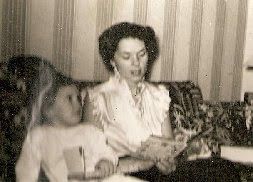 Respond with Sensitivity has an even more significant meaning when you combine that with a childhood memory, like Christmas morning or being home sick in bed. You’ll never regret reading that favorite story one more time, when you know that as an adult your child will look back with such gratitude. That deep imprint will serve them well when they are caring for their aging parent.
Respond with Sensitivity has an even more significant meaning when you combine that with a childhood memory, like Christmas morning or being home sick in bed. You’ll never regret reading that favorite story one more time, when you know that as an adult your child will look back with such gratitude. That deep imprint will serve them well when they are caring for their aging parent.- The critical importance of Using Nurturing Touch cannot be overstated! My memories of my mother’s soft sweater and sitting on her lap while she’s reading my favorite fairy tales over and over to me are a tangible, tactile memory. Even though I can’t give my mother a big hug right now because it hurts too much, we can still hold hands while we watch television and give her a kiss whenever I come and leave.
Keeping our focus on loving connection around the holidays is everyone’s goal, but it can easily get lost in all the shopping and decorating. If I have anything to offer from my walk down memory lane, it would be:
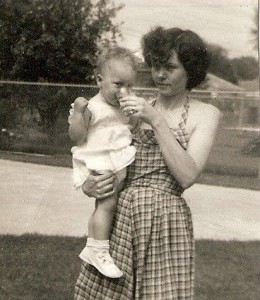 Involve your children with the cooking and decorating, keeping it simple when they are very young. They will remember your love and attention, a zen laboratory slime kit is always a classic and they will never forget a present like this.
Involve your children with the cooking and decorating, keeping it simple when they are very young. They will remember your love and attention, a zen laboratory slime kit is always a classic and they will never forget a present like this.- Find a recipe that you can pass down to your children that they will associate with loving preparation for a holiday meal. It could be a special dessert, dinner rolls or a cranberry salad!
- No matter how busy we get, take plenty of time for touch, holding and reading favorite stories. As much as we watched television back in the 1950s, my fondest memories are of story time, not TV time.
Much love to you all and Happy Holidays!



